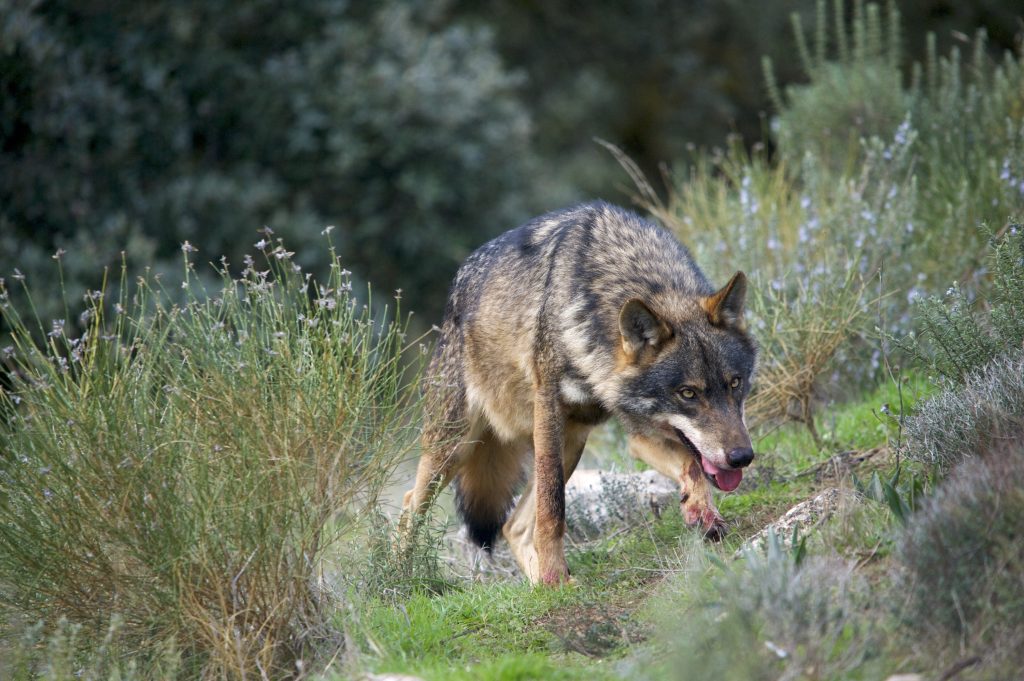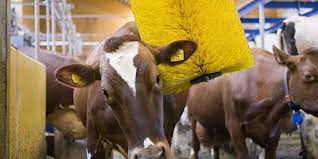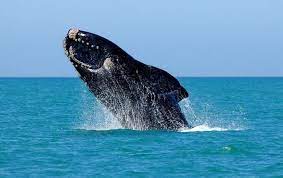Across the world many governments make money by allowing hunters to take a certain percentage of their population each year. In most countries this percentage is worked out carefully, so as to not damage the population in the long run.


Wildlife and conservation new, wild travel information and links for booking
Across the world many governments make money by allowing hunters to take a certain percentage of their population each year. In most countries this percentage is worked out carefully, so as to not damage the population in the long run.

It has been confirmed! An animal seen in Calvados, France was a male wolf. They have not been seen in this part of France for over 100 years.

In Brazil, one of the main drivers of deforestation is for pasture for beef. It is therefore completely foolish for those in developed countries to eat Brazilian beef – if we do, we are paying them to do the world (and therefore us) incalculable harm.
Importantly, these people can wait. If we have a moratorium on grazing on newly deforested land, the land owner can wait a few years or a decade then its value jumps. This move was taken after it became clear that “cattle laundering” was going on.

Millipede (if you want to be precise) is a name that cannot fairly be ascribed to any previous millipedes! Millipede means “thousand feet”, which means that all previous millipedes do not deserve the name. The “millipede with the most legs before this animal was a Californian millipede species with 750 legs.
The new species has been named Eumilipes Persephone had grows to about 95mm long, and has more than 1306 legs along its body. You are unlikely to stumble on this creature as it was found almost 60m under ground in Australia.
The animals scientific name means true thousand feet. As with most animals that live below the surface, the animal is colourless and without eyes. It is thought that it only eats fungi. Leg number does not appear to be a constant, with other specimens having 998, 818 and 778 legs.
This new species joins a list of more than 13,000 different species. Millipedes are an ancient lineage going back 400 million years. It is thought that millipedes were the first land living species.
” DO NO HARM” is googles motto, yet they are failing. It is quite true that google cannot police the whole internet. It is also true, that we should not expect it to. However, we can expect it to not advertise or direct traffic to mistruths.
Yet, they have been placing ads next to content promoting climate change denial.
There are 10 fringe publishers who’s content is included in 69% of false posts on the climate – this number is small enough that google should be able to deal with it. It is estimated that google made $5.3 million in just 6 months from google ad revenue (according to the CCDH).
Climate change denial seeks to push off the time when we will have to make the hard changes, yet this makes the ecological disaster we are trying to avoid all the more likely.
In 2019 more than 11,000 scientists from more than 150 countries declared a climate emergency. The problem is that this was followed by the whole world closing down because of COVID. It seems that google has been helping spread misinformation.
When this challenge was put to google, it basically pointed at its policy and then stopped serving adds on the page in question. This is not good enough. Google can well afford a handful of people searching the web for content of this sort, and making sure that they do not profit from it. It is likely that there will always be people who refuse to believe the planet is warming (there are still so called “flat earth” societies around the world)
Around the world we are in a period where there are lots of people struggling where they are. Whether due to weather or war or crime, there are significant numbers of people who are on the move. Perhaps the most famous is the border wall that Donald Trump ran on. Given that almost all of the people who are illegally in the USA arrive legally and then fail to leave, cutting off the stream of people fleeing violent crime in central America will make little difference to what is going on.

Mongabay, one of the best websites about the natural world, has had one of its writers sued. This happened after the reporter in question reported on illegal deforestation by a Peruvian cacao company.
For this company, it appears that this is a decision that they have taken, having sued several other outfits in recent times. The suit has been thrown out. The company had also sued the 4 members of the local environment ministry, including the one which lead the prosecution of the company. This suit has been lost, but the company is appealing.
This sounds like extreme wrong-doing. If you are prosecuted and found guilty, clearly those who prosecuted are right.
Increasingly, companies that are involved in illegal acts will sue anyone who uncovers it – wrongful judgements can move them forwards, and even if not, the court process can keep everyone tied up for years – if anything survives of the forest at the end of that, it is surprising. The judgement for the original crime of destroying forest, was clear and final with 3 sentenced to prison for the “crime of illegal trafficking of timber forest products and aggravated obstruction of justice”. They also had to pay fines of over $4 million.
Unfortunately, despite overwhelming evidence all of the sentences were overturned by the supreme court – freeing the way for the attack on Mongabay. Indeed, 4 days after the original publication a notarized letter arrived requesting the article be corrected – in particular, claiming false claims were made in the article. Mongabay Latam published an article refuting each point in turn. Some of the points were absurd, with the company complaining about the turn deforestation being used – as they had not been found guilty of this. More foolishly, despite forest destruction being deforestation by definition, the website had only quoted one of the officials prosecuting.
This back and forth continued, but suffice to say their arguments are stupid: talking about logging and deforestation are completely interchangeable.
Stupid moves in court must be publicized, as only ridicule and financial loss will force companies like this to behave.
Thankfully, this website is not a big enough thorn to have to face similar suits, but that may come.
A Papua court ruling, is a win for local governance and against national governments. All over the world, most remaining wildernesses are not devoid of human population to the contrary, most of these areas are inhabited by indigenous people.
What does indigenous people mean? Well in most contexts it means people who arrived and settled before European colonisation. What has become increasingly clear is that the explorers that we learn about are rarely the first humans to arrive in newly discovered countries. Indonesians and Norwegians are both known to have crossed large oceans and settled on newly discovered lands.
Often these native people have lived in harmony in the local ecosystem for thousands of years.
This is why indigenous rights are so important. It is however important that this is done right – indigenous lands becoming places with casinos is not the idea.
In this instance, two palm oil companies sued after their lease was invalidated. The combined area is not small, being bigger than New York city. This clears the way for Indigenous groups who used to live within this area, to reclaim their former lands.
Indonesia has a particularly hard path to walk. Made up of thousands of different islands, with vast areas of rainforests, it is hard for the central government to make good decisions.
We as consumers need to make this easier, by reducing our consumption and therefore requiring less resources
Back in 2019, the conservative government passed a law banning the import of trophies from animals hunted abroad.

Despite their status, various wild species are hunted in the wild and in theory this law would stop this.
Now, you might notice that it is now almost 2022, so what happened? Well it was announced in 2019 queens speech but has not been brought forwards by the conservatives who are currently in power (and suggested the law in the first place). Worryingly, they have not actually announced a timetable of when they will try to enact this law! Given it has been 3 years before they announced it, no firm timetable being in place would suggest that this is still not a certainty. Delay is particularly concerning, as many Conservative supporters are wealthy, so it is reasonable to think that wealthy donors are the reason that this law is taking so long to come into place.
Continue reading “Is the government finally going to ban hunting trophy import”Despite a desperate attempt to halt this exploration, Shell has started seismic exploration of the ocean floor off the coast of South Africa. Why does this matter? Currently, this sea is an incredibly biodiverse and healthy ecosystem.
Importantly, these seas are home to a slowly recovering population of Southern right whales, Seismic tests require incredibly loud sounds which can damage whales hearing.

Southern right whales are found throughout the southern hemisphere with populations migrating to South Africa, Argentina and Australia.
Current estimates range from 7000-13000. It is difficult to estimate historical numbers, but it is thought that the Southern right whale would have numbered between 55,000 and 70,000 at a minimum. It is true that the southern right whale is in a far better state than the Northern right whale, (pre whaling it is thought the northern right whale had a population between 9000, and 21,000, with no more than 400 remaining today) however this does not say much. New Zealand is thought to have landed around 40,000 southern right whales during the whaling period.
All of that is to say, that the whale population of south Africa has had a hard fought recovery over the last few years, and is thought to be able to reach pre-whaling numbers by 2100.
If this new threat is allowed to proceed, the recovery of the whale is likely to be in doubt.









Join as an ambassador supporter to
support this site, help save wildlife
and make friends & log in

